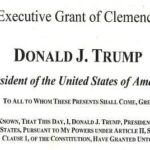North Texas Meth Sentences – Congressional Measures and Racial Disparities
From Proximity to Punishment: Latinos and Meth Sentences
Latino populations are being disproportionately affected by methamphetamine-related sentences in North Texas. Though they constitute only a third of the total population, Latinos account for the majority of those subjected to lengthy sentences due to stringent meth laws. In fact, Latinos represent about 57% of meth defendants and an overwhelming 59% of those handed more than 20-year sentences based on the analysis of 10 years of federal court data by The Dallas Morning News.
Dissecting the Roots: Federal Sentencing Guidelines and Racial Disproportions
Federal laws pertaining to meth trafficking impose harsher penalties compared to other, more lethal drugs. It is noteworthy how maximum sentences are noticeably more extended in the Northern District of Texas, even for nonviolent first-time offenders. Moreover, the burden of these laws is not only borne by the convicts but also drains U.S. taxpayer money, summing up to an estimated $1.4 billion per year.
Key Indicators: The Role of Meth Purity in Sentencing
Ironically, an outdated component in constituting blame seems to be contributing to the disproportionate sentences – the purity of the meth involved. Considering that the vehiculous majority of the meth supply is highly pure, its use as a determinant of punishment severity is preposterously flawed. This is particularly problematic in federal district courts where judges frequently classify the meth involved as highly pure, leading to more severe sentences.
Inequality in Legal Representation and Access to Resources
Unfortunately, the inequities begin at the initial stages of legal proceedings: arrest and detention. These inequalities prevail throughout the justice system, extending to sentencing. Factors such as economic instability hinder the ability of Latinos to procure quality legal counsel and evade entanglements with the criminal legal system.
Historical Perspective: A Look at the Crack Cocaine Laws
Similar racial disparities were witnessed during the infamous crack cocaine laws era that resulted in Black Americans receiving harsher sentences than their white counterparts who used the powdered version of the drug. Reforms in 2010 rectified this to an extent, yet hefty sentences for meth offenses persisted, and even increased, as more Latinos got involved in the meth trade.
Racial Disparities in Meth Sentences: A Matter of Geographical Location?
One might attribute the severe meth penalties in Texas to its geographical proximity to Mexico. However, other border states that also see a high influx of meth trafficking, such as California and Arizona, impose considerably lesser sentences. This indicates that geographical location is an insignificant factor in explaining the harsh meth sentences in Texas.
Toughening of Meth Laws: Congressional Influence and Shortcomings
In the late ’90s, stringent meth laws were enacted following a decrease in the percentage of white meth offenders and an increase in Latino involvement. Sadly, during the legislative debate, potential racial disparities were overlooked, leading to the perpetration of inequitable sentencing outcomes.
The resultant disparities in sentencing are reminiscent of the crack cocaine era, indicating a lack of learning from previous mistakes. The solution lies not in disproportionately targeting minority groups but in focusing on treatment, prevention, and equality under the law.
Conclusion: A Call for Reform
It’s high time measures were implemented to rectify the disparate impact of meth sentences, with a focus on fairness and equal treatment. The judicial system should reevaluate the role of meth purity in constituting blame, and prioritize equal access to legal resources, regardless of race or socioeconomic background.
Originally Post From https://www.dallasnews.com/news/investigations/2024/12/05/latinos-hit-especially-hard-by-north-texas-meth-sentences/?outputType=amp
Read more about this topic at
Methamphetamine Trafficking Offenses in the Federal …
Is Meth the New Crack for Women in the War on Drugs? …


